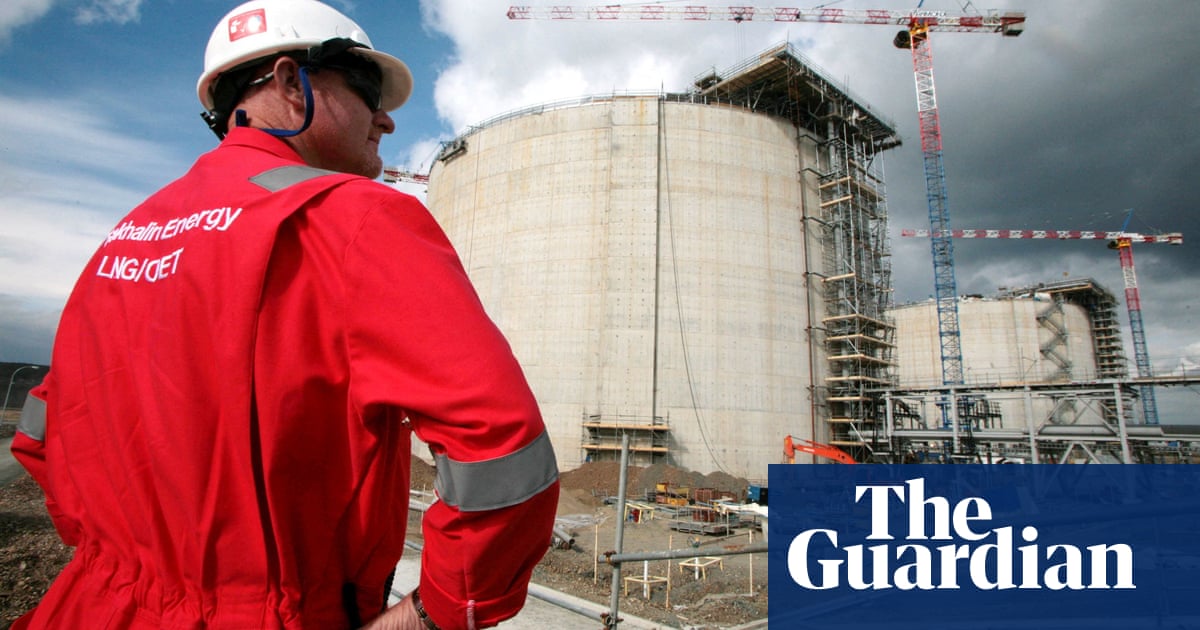
Fossil fuel multinational Shell does not believe it will ever pay the Australian government a cent in resource taxes for the gas it draws from the country’s biggest gas project, Gorgon.
The projection about taxes on the gas, which is likely to be sold for billions of dollars a year, is contained in the company’s latest annual report, released last month, and was first reported by energy news website Boilingcold.
It covers both Gorgon – a project off the West Australian coast that when fully operational is expected to provide 15.6m tonnes of gas a year – and Shell’s smaller Prelude project, a floating gas facility that also sits off WA.
Shell owns 25% of Gorgon as part of a joint venture with Chevron, which owns 47.3% and operates the project; ExxonMobil, which owns 25%; and three Japanese groups, which own the remainder.
Under Australian law, mining of petrol products, including gas, is subject to a special tax called the petroleum resource rent tax, which is supposed to capture a share of the profits from projects such as Gorgon and Prelude.
The tax, which only kicks in when fields are in their production phase, has long been controversial because since the turn of the century it has failed to produce significant government income despite Australia’s increasingly rich offshore oil and gas fields.
Shell’s projection that it will never pay any PRRT is revealed in a note dealing with what are called “unrecognised losses” due to tax.
The company said it had US$39.4bn ($51.7bn) in “unrecognised losses for Petroleum Resource Rent Tax (PRRT) in Australia” – tax that it expects it will not have to pay.
“Based on business forecasts at existing commodity price levels, and the annual augmentation of the unused PRRT losses, this amount is expected to increase in the near future,” it said.
This indicates that, as of the end of 2020, Shell expected that it would never pay any PRRT.
However, in another note Shell indicated it could change its forecast if there is an increase in the gas price that makes its Australian projects more profitable.
“To the extent assumptions regarding future profitability change, there can be an increase or decrease in the amounts recognised in respect of deferred tax assets as well as in the amounts recognised in income in the period in which the change occurs,” it said.
A Shell spokesperson said the company “complies with all its legal and taxation obligations and is committed to paying the right amount of tax under the letter and the spirit of the law in all countries in which we operate.”
“When it comes to taxes, we believe it is up to governments to set their policies and the rules for individual and business taxes.”
Chevron, which paid no income tax on $900m of income in 2019, does expect to pay some PRRT on Gorgon and other Australian projects in the future, its 2020 accounts show.
However, it has also increased its unused tax benefit from PRRT from US$4.8bn ($6.3bn) to US$6.3bn ($8.3bn), indicating the point at which it will start to pay the tax has moved further into the future.
A company spokesperson declined to say when Chevron expected to pay PRRT on gas from Gorgon, except that it would be after the field was fully operational.
“Chevron understands the importance of businesses contributing their fair share of tax in Australia and the community’s expectations in this regard,” the spokesperson said.












